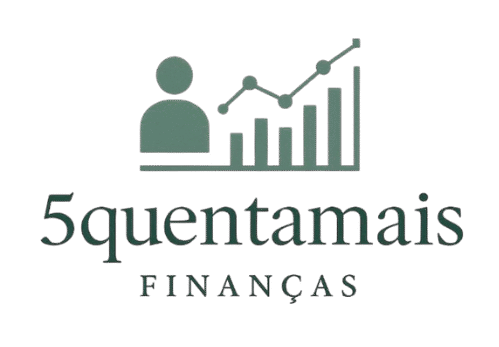How to Use Your Home Equity to Secure a Comfortable Retirement
Introduction For many individuals aged 50 and above, the family home represents not only a place of comfort and memories but also a significant financial asset. As retirement approaches, leveraging home equity can be a powerful strategy to supplement retirement income, pay off debt, or even fund major expenses like healthcare or travel. However, it’s essential to understand the different ways to access this equity and the potential risks involved. In this article, we’ll explore various strategies for using your home equity to secure a comfortable retirement, along with the benefits and drawbacks of each approach.
Understanding Home Equity Home equity is the difference between the current market value of your home and the amount you still owe on your mortgage. Over time, as you pay down your mortgage and your home’s value appreciates, your equity increases. This equity can be a valuable resource in retirement, providing financial flexibility and security.
Ways to Access Home Equity
1. Home Equity Loan
A home equity loan allows you to borrow a lump sum of money against the equity in your home. This type of loan typically comes with a fixed interest rate and is repaid over a set period, usually 5 to 15 years.
Benefits: Home equity loans offer predictable payments and interest rates, making it easier to budget. They can be used for large, one-time expenses like home renovations, debt consolidation, or healthcare costs.
Drawbacks: Your home serves as collateral, so failure to repay the loan could result in foreclosure. Additionally, taking out a large loan in retirement could strain your budget if not managed carefully.
2. Home Equity Line of Credit (HELOC)
A HELOC is a revolving line of credit secured by your home equity. It works much like a credit card, allowing you to borrow money as needed up to a certain limit. Interest rates on HELOCs are typically variable, meaning they can fluctuate over time.
Benefits: HELOCs offer flexibility, allowing you to borrow only what you need when you need it. This can be particularly useful for ongoing expenses, such as medical bills or home repairs.
Drawbacks: Variable interest rates can lead to higher payments over time, and the temptation to overspend can be a risk. As with home equity loans, your home is at risk if you fail to repay the borrowed amount.
3. Reverse Mortgage
A reverse mortgage allows homeowners aged 62 and older to convert part of their home equity into tax-free cash. Unlike a traditional mortgage, you don’t need to make monthly payments. Instead, the loan is repaid when you sell the home, move out permanently, or pass away.
Benefits: Reverse mortgages can provide a steady stream of income in retirement without requiring monthly payments. The funds can be used for any purpose, including living expenses, medical care, or even travel.
Drawbacks: Reverse mortgages reduce the amount of equity you can leave to heirs, and fees and interest can add up over time. Additionally, moving out of the home can trigger repayment, which might not be ideal if you plan to relocate later in life.
4. Cash-Out Refinance
A cash-out refinance replaces your existing mortgage with a new one for a higher amount, allowing you to take the difference in cash. This option can be useful if current interest rates are lower than what you’re paying on your existing mortgage.
Benefits: Cash-out refinancing can provide a large sum of money while potentially lowering your interest rate. It can also be a good option for paying off high-interest debt or funding significant expenses.
Drawbacks: Extending the term of your mortgage could increase the total amount of interest paid over time. Additionally, refinancing costs and fees can be substantial, reducing the net benefit of this option.
Factors to Consider Before Accessing Home Equity
1. Current and Future Housing Needs
Before tapping into your home equity, consider your current and future housing needs. If you plan to downsize or relocate, using home equity now could limit your options later. It’s important to weigh the immediate benefits against potential long-term impacts on your housing situation.
Downsizing: Selling your home and downsizing to a smaller, more affordable property can free up equity and reduce ongoing housing costs. This option also allows you to avoid taking on new debt while accessing the equity you’ve built up.
Relocating: If you plan to move to a different area, particularly one with a lower cost of living, selling your home and using the proceeds to buy a new property outright could eliminate mortgage payments and provide additional funds for retirement.
2. Impact on Heirs and Estate Planning
Accessing home equity can affect the amount of wealth you leave to your heirs. If preserving your home as part of your estate is important, consider the potential impact of a home equity loan, HELOC, or reverse mortgage on your estate planning goals.
Estate Preservation: If you’re concerned about leaving a legacy, it may be worth exploring other retirement income sources before tapping into home equity. Discussing your plans with an estate planner can help ensure your wishes are honored.
Communication with Family: Openly discussing your plans with your family can help avoid misunderstandings or disputes later on. If your home equity is a significant part of your estate, it’s important that your heirs understand how and why you’re using it.
3. Interest Rates and Market Conditions
The interest rates and housing market conditions can significantly impact the cost and benefits of accessing home equity. For example, rising interest rates can make HELOCs and cash-out refinances more expensive, while a declining housing market can reduce the amount of equity available.
Timing: Consider the timing of your decision to access home equity in relation to market conditions. If interest rates are low, it might be an advantageous time to refinance or take out a home equity loan. Conversely, if the market is declining, you may want to explore alternative strategies until conditions improve.
Consult a Financial Advisor: Working with a financial advisor can help you assess the current market and interest rate environment and determine the best course of action based on your specific financial situation.
Alternative Strategies for Supplementing Retirement Income
1. Downsizing and Relocating
As mentioned earlier, downsizing or relocating to a more affordable area can be a practical alternative to accessing home equity. This strategy allows you to reduce your housing costs and potentially unlock significant equity, which can be used to supplement your retirement income.
Benefits: Downsizing can lead to lower utility bills, property taxes, and maintenance costs. Relocating to an area with a lower cost of living can stretch your retirement dollars even further.
Drawbacks: Moving can be emotionally challenging, especially if you’ve lived in your home for many years. It’s also important to consider the costs associated with selling a home and purchasing a new one, which can eat into the proceeds from the sale.
2. Renting Out a Portion of Your Home
If downsizing or relocating isn’t appealing, renting out a portion of your home can generate additional income without requiring you to move. This option can be particularly beneficial if you have unused space, such as a basement or separate apartment.
Benefits: Renting out a room or portion of your home can provide a steady stream of income and help cover housing expenses. It can also be a way to stay in your current home while making better use of the available space.
Drawbacks: Becoming a landlord comes with responsibilities, such as managing tenants and maintaining the rental space. It’s also important to consider the potential impact on your privacy and lifestyle.
3. Taking on a Reverse Mortgage
If you’re looking for a way to supplement your income without moving or taking on new debt, a reverse mortgage may be worth considering. As mentioned earlier, this option allows you to access your home equity without making monthly payments, providing financial flexibility in retirement.
Benefits: A reverse mortgage can provide a consistent income stream while allowing you to stay in your home. It also doesn’t require repayment until you move out, sell the home, or pass away.
Drawbacks: The fees and interest associated with reverse mortgages can be high, and they may reduce the amount of equity available to your heirs. Additionally, reverse mortgages can be complicated, so it’s important to fully understand the terms before committing.
Using your home equity to secure a comfortable retirement can be a smart financial move if done carefully. Whether you opt for a home equity loan, HELOC, reverse mortgage, or cash-out refinance, it’s crucial to consider your current and future housing needs, the impact on your heirs, and the current market conditions. By exploring these options and weighing the benefits and drawbacks, you can make informed decisions that support your retirement goals and ensure financial security throughout your retirement years. Remember to consult with a financial advisor to tailor these strategies to your unique circumstances and maximize the potential of your home equity.




